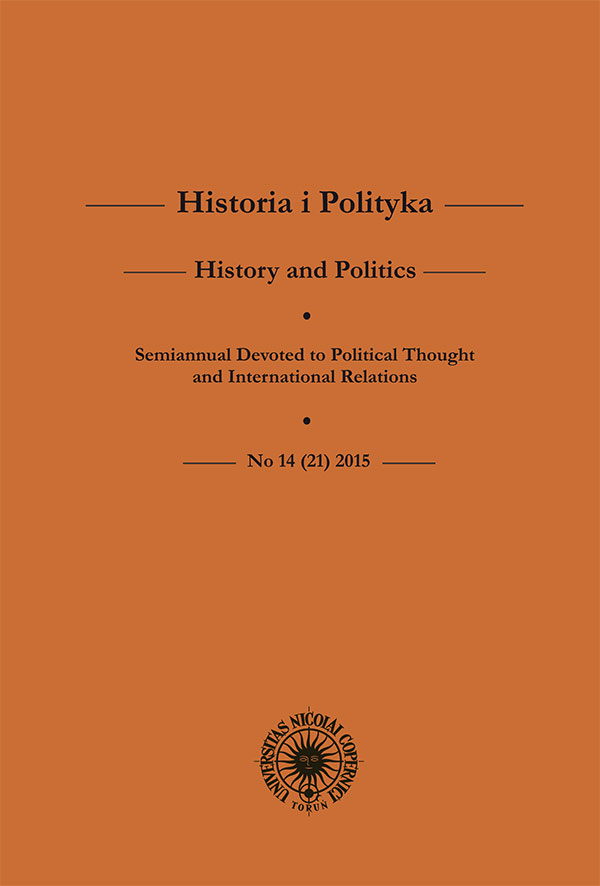Radical Islam as a Means of Self-Realization for the North Caucasian Youth: From the Terrorist-Criminal Groups to the Beginnings of the Creation of a New, Less Controlled Subculture
Radical Islam as a Means of Self-Realization for the North Caucasian Youth: From the Terrorist-Criminal Groups to the Beginnings of the Creation of a New, Less Controlled Subculture
Author(s): Nikoloz JanelidzeSubject(s): Criminology, Radical sociology , Peace and Conflict Studies
Published by: Wydawnictwo Naukowe Uniwersytetu Mikołaja Kopernika
Keywords: North Caucasus; Russia; Wahhabism; terrorism; radical islam; subculture;
Summary/Abstract: Radical Islam with its various types of manifestations is one of the significant challenges facing the modern world. This problem has also affected the societies of autonomous republics bordering Georgia to the north. In today’s North Caucasus, the activity of radical Islam followers has reached beyond the political (in many cases terrorist) niche and has acquired quasi-social characteristics. Furthermore, the facts and tendencies indicate that this part of the society (in this case youth) purposefully or unintentionally creates the so-called uncontrolled and/or less controlled subculture with different opinions, views, ideology, behaviors, in many cases clothes, hairstyle, etc. Radical Islam (in this case as a doctrine) regulates human conduct – provides advice, dictates how to act, and in fact it sets a dogma how to dress, how to behave in public, how to live, etc. Wahhabis/Salafis are forbidden to smoke tobacco, hashish, to use beads, sing loudly, dance, etc. It is worth to separately note the so-called aggressive wing of Wahhabism/Salafism or the terrorists, field commanders, etc. One of the motives for writing the article is to show readers the fact that radical Islam in North Caucasus is not solely a terrorist activity. It encompasses a much broader spectrum of the society, and at the same time it is much more than a religion. It sets the norms of social behavior and thinking, which in itself limits the formation of subjective attitudes. Exactly the lack of the latter generates the negative trend of their activities, which quite often are used for political actions by the respective forces.
Journal: Historia i Polityka
- Issue Year: 21/2015
- Issue No: 14
- Page Range: 109-120
- Page Count: 12
- Language: English

